Russian-Chinese School — A Real International Event
The VII International Russian-Chinese Summer School on International Relations ‘Economic Instruments of Foreign Policy in the Modern World’ was held on July 6-13 at the HSE Faculty of World Economy and International Affairs (Moscow) in full cooperation with the East China Normal University (Shanghai) and with the support of the Gorchakov Fund.
This year, the school was a continuation of previous similar formats for Russian-Chinese partnership. It brought together students, young researchers and professors from Russia, China, Vietnam, Bulgaria, Iran, Croatia, Kazakhstan, Uzbekistan and other countries to discuss issues that have become more and more important in the modern world. As the head of the school, Professor Timofey Bordachev, notes ‘the project has developed from a bilateral Chinese – Russian initiative into a truly international event’. The focus of this year’s school was on the economic tools of foreign policy, such as sanctions, official development assistance, and interaction within multilateral platforms.
‘Both Russia and China are important players on the global arena. They maintain a very positive dynamic in bilateral relations and participate in joint projects. This attracts people who are interested in international relations and would like to examine different views on Russian and Chinese foreign policy. There were about five applications for each spot at the school, so it was quite competitive,’ comments Anastasia Pyatachkova, Deputy Head of Asia-Pacific Division of the HSE Centre for Comprehensive European and International Studies (CCEIS) and one of the school’s organizers.
During the school, participants met with several experts, including Konstantin Kosachev, Chair of the Foreign Affairs Committee (Federation Council of the Russian Federation), Natalia Stapran, Director of the Department of Project Promotion in the Asia-Pacific (Ministry of Economic Development of the Russian Federation), Fyodor Lukyanov, Editor-in-Chief of Russia in Global Affairs, Raisa Epikhina, Junior Research Fellow at MSU and representative of the Gorchakov Fund, and. As Anastasia Pyatachkova notes, ‘the participants were able to learn official government positions as well as the opinions of Russian and Chinese experts. I saw that the participants discovered new perspectives, which I think this is one of the major outcomes of the school.’
In addition to the event’s lectures and group work, the participants enjoyed a rich cultural programme, which included outings to various places of interest in Moscow, such as the Red Square, Izmailovo Kremlin and Gorky Park, as well as Russian and Chinese Cultural Evenings where students presented national customs, cuisine, poems and songs.
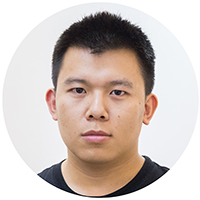
Fu Yu, East China Normal University (China)
Russia is a great and interesting country which I admire. This is my first trip abroad and I’m happy I’ve chosen Russia. I have a very good impression of the summer school because all the professors are quite knowledgeable about international relations. We learnt a lot during these seven days – not only about Russia and China, but also about Pakistan, India and other Asian countries. I think I benefited greatly from group work because we all come from different universities and countries and we can discuss various issues, look at different perspectives and exchange opinions. Previously, I only thought about Chinese perspective on international relations but now I’ve learnt more about Russia’s opinions, which is very interesting. I think Russian and Chinese people should cooperate more.
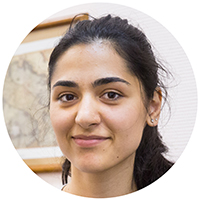
Ekaterina Nakatakyan, MGIMO (Russia)
I came here, because at MGIMO, I major in economics but also focus on Russian-Chinese relations. We completed a project on international relations, and my part was about military security. I looked at areas of military cooperation between China and Russia, at the dynamics of the arms trade, and at other related issues.
I liked the school and the lectures a lot, especially the lecture by Professor Lukyanov. Speaking about teamwork, I was lucky to be on an international team. We played a game where each team member was assigned a country, and we had to defend that country’s interests. I was the only representative of Armenia on my team; the other students represented other countries, and it was exciting to listen to their views of Armenia and for me to share my knowledge with them. I hope they know more about Armenia now. The second team that was formed for project work also featured participants representing various nationalities. It was interesting to work with people who look at the work process differently and who have different presentation style. It was great working together.
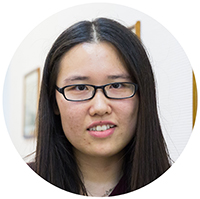
Xiao Miaowen, East China Normal University (China)
I have never been to Russia – this is my first time here. I was really interested in Russia and I think it was a good opportunity to meet many people from different cultural backgrounds. Our project was about Russia and China economic relations and we did a lot of research during this summer school. We also enjoyed the Russian cultural evening very much. We had a lot of interesting side events – a visit to Red Square being one of them. Overall, it’s been a great experience for me.
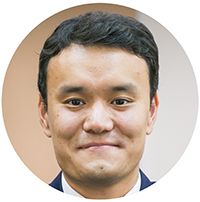
Anuar Baltabayev, Warwick University (UK)
I found the school announcements on the official website of the Higher School of Economics. My decision to come here was based on several reasons. Firstly, I believe that it’s a great chance to meet leading thinkers, experts, professionals, and researchers in the field of international affairs, and to obtain useful knowledge, both theoretical and practical. Secondly, I think it’s a great chance to be part of the HSE alumni, because HSE is one of the leading institutions in Russia. Thirdly, I think that this summer school gives a lot of great opportunities to meet new friends from many different countries, not only from Russia and China, but also from Europe, Central Asia, and even from Africa.
My research interest is ‘One Belt, One Road’. I come from Kazakhstan and for my country it’s important to have good professionals in this field because we are in the centre between Russia and China. During the school I was part of the project group that analyzed China-Russia Relations. We were focusing on institution building in China and Russia and its implications for soft power. As you know, this definition is well-known in the theory of international relations, and we tried to find different approaches to how it can be adapted on the territory of Eurasia, which is definitely in the interests of both Russia and China.
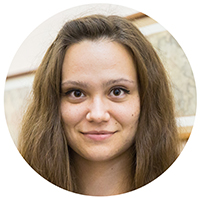
Irina Slashcheva, Belgorod National Research University (Russia)
In general, the school exceeded all my expectations, which is largely because serious events like lectures on relevant global problems were combined with games, concerts, and excursions.
Our project team investigated China’s soft power, and we tried to look at the ways in which Russia can use China’s experience. Our results were rather interesting. In this project, we assumed that soft power is underdeveloped in Russia, but it turned out that by some measures, Russia ranks even higher than China. But Russia can still learn a lot. Russia has too many initiatives related to soft power: a federal programme to advance Russian language, a strategy to export educational services, and many other things. However, these initiatives are not integrated by one idea and one model, which makes them appear disconnected. We concluded that if Russia adjusts its model of soft power management, it would be more effective. In addition, China has some interesting types of soft power diplomacy, such as smile diplomacy and ecological diplomacy. These are things that fit their culture and can be developed and used as an advantage. Russia also has a lot of special characteristics, and it makes sense to consider them and use them in order to advance Russia’s global image – to show that Russia is a great and friendly country that is worth studying, that it is not aggressive, but cooperative, and has vast potential.
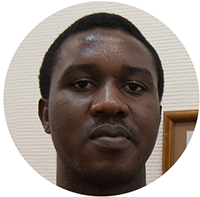
Bamidele Emmanuel Ola, HSE (Russia)
I’ve always been interested in international relations, especially in what concerns Russia and China – with a view to studying in one of these countries and applying the knowledge to my country, Nigeria. I find this school a fantastic opportunity. What was most striking for me, coming from an African background, was the sincerity with which speakers spoke, calling a spade a spade. They were so straightforward! This is very different from some cultures where people might want to change the topic to avoid saying something unpleasant. Here everything is laid bare. I was learning from the speakers but I was also trying to apply it to Africa. In our group we worked on Shanghai Cooperation Organization. We tried to discuss the prospects and the challenges of SCO. It was the first time I’d heard about such organization so it was most educational.
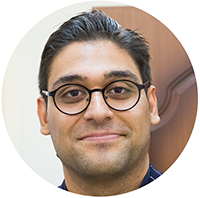
Saman Sofalgar, Tarbiat Modares University (Iran)
I heard about this school through one of my professors at university. He is an expert in the field of Chinese foreign policy studies and I did my thesis with him. I found this summer school a great educative opportunity so I submitted my application and was very happy to come to Russia. The school has helped me to broaden my views. My research is into Chinese foreign policy, particularly in East Asia and Africa. I have had some publications in various journals. So the main focus of the summer school was of particular interest for me. Our project was about the institution building of China and Russia through the lens of soft power. The city is lovely, although the weather is unpredictable this year. People of Moscow are quite friendly. It’s been a pleasure. At my university I majored in International Relations and now I work as a teacher at one of Iranian universities. There were many interesting issues discussed during the summer school. What I liked most was the opportunity to interact internationally – both during the classes and at the dormitory. HSE is truly international!
See also:
Eighth International U4U Online Seminar Unites Experts from 14 Countries
The HSE Online Campus hosted a two-day international U4U (Universities for Universities) seminar, which traditionally serves as a platform for exchanging expertise in online learning. This year, the event has reached a global scale, attracting international experts and representatives of universities from around the world. Together, they discussed key challenges and strategies for the development of online education. The online meeting was held in mid-November.
‘Keep Working, Keep Publishing—Consistency Matters’
Ziyuan Zhu, from Beijing, China, is an international PhD student at the Institute for Public Administration and Governance at HSE University in Moscow. In this interview with the HSE News Service, Ziyuan talks about how studies can influence one’s outlook on life, comparing public service models in different countries, and why being a Chinese student in Russia is advantageous in research.
Under a Blooming Magnolia: How Russian and Chinese Scientists Create Solar Cells of the Future
Schola continues to introduce the winners of the International Academic Cooperation competition. In today's issue, Professor Andrey Vasenko, Deputy Head of the Scientific and Educational Laboratory of Quantum Nanoelectronics at Tikhonov Moscow Institute of Electronics and Mathematics (MIEM), speaks about the joint project between his laboratory and the Peking University research team— ‘Engineering of highly efficient and stable perovskite solar cells.’
Graduate School of Business MBA Students Take Part in Offsite Module in China
MBA students of the HSE Graduate School of Business HSHSE have recently completed the international component of their studies at the School of Economics and Management at Tsinghua University. The module focused on developing business through innovation. The participants discussed the impact of new technologies on corporate structures and visited companies operating in robotics and renewable energy.
Cardiogenetics of the Future: Sequencing Helps Treat Heart Disease
Future cardiologists, geneticists, and IT specialists gathered at HSE University to learn how to 'read' DNA for diagnosing cardiovascular diseases. They explored modern sequencing methods and the complexities of working with digital twins of cardiac patients.
Meeting with Xinhua Delegation: Discussion on Contemporary Journalism at HSE
On October 22, 2025, HSE University hosted an open meeting with representatives of the Chinese news agency Xinhua, led by Sun Zhiping, Chief of Staff to the Director General. Participants discussed current challenges in journalism and the operational specifics of news agencies in today’s media landscape. Many students took the opportunity to ask questions and practise speaking Mandarin. The visit was organised by the Faculty of World Economy and International Affairs in collaboration with the HSE Institute of Media and the TASS news agency.
HSE Participates in Conference on International Exchange of Professionals in China
From October 21 to 24, 2025, the 23rd Conference on International Exchange of Professionals took place in Shanghai and Beijing, bringing together more than 7,000 scientists and experts from around the world. HSE University was represented by Ivan Arzhantsev, Dean of the Faculty of Computer Science, and Vasily Gromov, Head of the Laboratory for Semantic Analysis of the Centre for Language and Semantic Technologies.
‘It Was Interesting to See How Our Chinese Colleagues Work’: HSE Researchers Take Part in Hefei Summer School
This summer, Diana Sukhoverkhova, Daria Mazur, and David Kagramanyan, research assistants at the MIEM HSE Laboratory for Computational Physics, spent five weeks in China. At the Future Scientist Exchange Program (FuSEP) summer school in Hefei, they worked in new fields of science together with their Chinese colleagues. HSE's promising scientists spoke to the HSE News Service about their intense and productive time in China.
Works of HSE Art and Design Students Presented at Pingyao International Photography Festival
On September 19, the 25th Pingyao International Photography Festival (PIP) opened in Pingyao, Shanxi Province, China. The exhibition features the works of 16 students of the Faculty of Creative Industries at the HSE Art and Design School, selected following the results of the HSE Creative Open / Photoproject international competition, which received more than 300 entries.
Archival Impulse: Dubna Hosts Summer School Organised by HSE University and JINR
The Joint Institute for Nuclear Research (JINR) in Dubna hosted the Archival Impulse Summer School, co-organised by JINR physicists, historians from the HSE Faculty of Humanities, and staff from the Archives of the Russian Academy of Sciences (ARAS). This first archival summer school continued the joint initiative of HSE University and JINR to examine and preserve the unique historical legacy of physicists.


